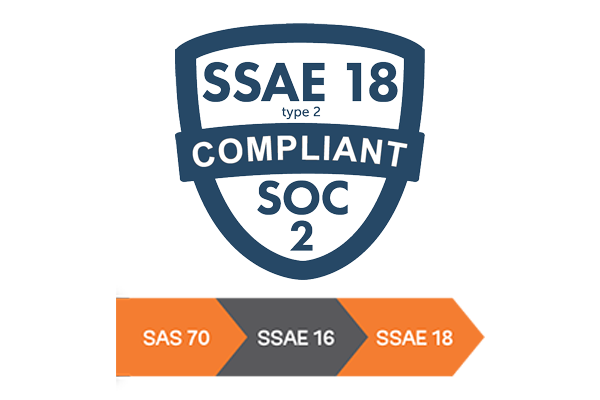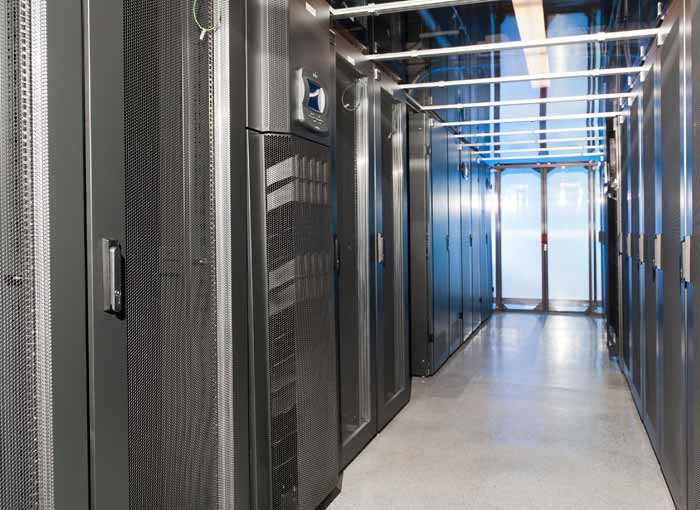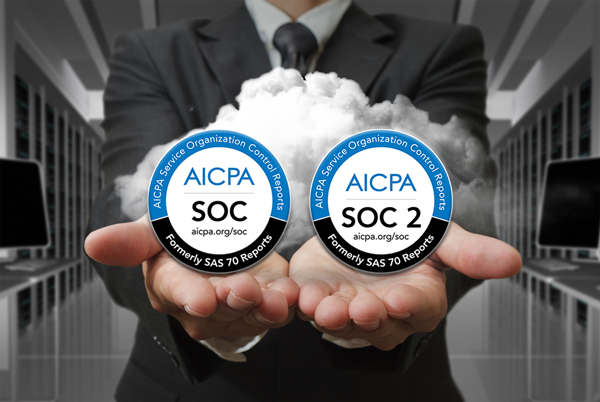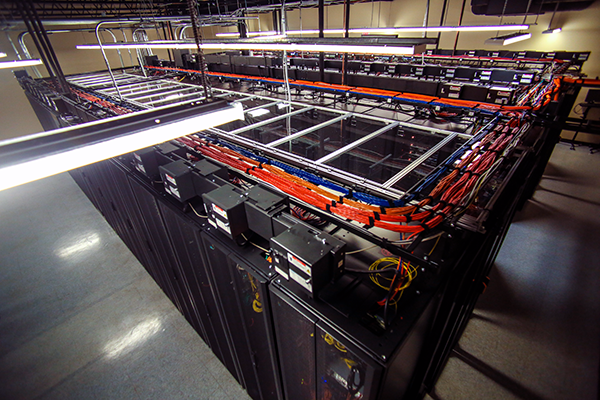Archive for the ‘datacenter’ Category
Finding the Right Data Center for Your Business no comments
Once you have decided that utilizing the Cloud is the right decision for your business, you will need to find the right data center provider. You are placing all of your important data or even your company’s entire IT infrastructure in this data center, so you must make sure that you choose the right one.
The best way to find the right data center is to begin by talking to some of the provider’s current clients. These are the people who have already made the decision to trust the provider, and they will have the best insight into how the data center works and what it can offer. Try some of these questions to discover more about the service that you are considering:
- Did you find the on-boarding process relatively easy to accomplish?
- What is the technical support like when you encounter problems?
- Have you personally experienced any serious security concerns or incidents?
- How have your security concerns been handled by the provider?
If you are dissatisfied with any of the responses to these questions, you do not have to use that particular provider. Keep looking and asking questions until you find a data center that meets your needs and that makes you feel comfortable.
Technology is constantly changing and improving, and you need to be able to trust that your data center provider will keep up with the evolution of security needs. For any cloud or data center solution, find out whether there are security protocols in place, including:
- Physical security of the data center
- Environmental controls
- Back-up measures for power and internet
- Back-up measures for your data
- Technical support when you need it
Frequent system audits are also necessary in order to ensure that all data centers meet or exceed industry standards for data security. When you are searching for a cloud provider, ask potential candidates about their compliance to SSAE-18/SOC. This set of standards measures the amount of control that a data center maintains over your sensitive data and financial information. An audit will report any flaws in data flow. You should also inquire about compliance to the Health Insurance Portability and Accountability Act (HIPAA). This regulation ensures the security and privacy of private health information that is stored or hosted in a data center.
If your cloud provider’s datacenter is compliant with both of these standards, you can rest assured that your sensitive data will be monitored and its integrity will be maintained.
Choosing to put your business information or IT infrastructure in a data center rather than housing it on-site is an important decision that requires careful vetting of your potential provider. Once you have chosen the right provider, you can trust that they will keep your company operational and important information secure.
TurnKey Internet owns and operates its own private, SSAE-18 certified, data center located in New York’s Tech Valley region. Owning our data center, we have been able to design, build and maintain every aspect of its construction to provide an ideal hosted server environment. This allows us to provide our clients fast, secure and reliable performance at all times. We’ve also been able to leverage the state-of-the-art in green technologies, making our data center among the most energy-efficient world-wide.
For more information, visit https://www.turnkeyinternet.net/datacenter
Follow Us :Share :
What is the Difference Between SOC 1 and SOC 2 Certification Reports? no comments
SOC 1 Report
The System and Organization Controls or SOC 1 report, is an audit that evaluates a service organization’s internal controls and procedures that are relevant to protecting client data. SOC 1 control objectives are focused primarily on the handling of data, which may impact a client’s financial statements and reports. There are two types of SOC 1 reports:
SOC 1 – Type I report focuses on a description of a service organization’s control and the suitability of how those controls are designed to achieve the control objectives.
SOC 1 –Type II audit report contains the same opinions as a Type I, but it adds an opinion on the operating effectiveness to achieve related control objectives.
SOC 2 Report
A SOC 2 report, like a SOC 1, also evaluates internal controls and procedures. The difference is that a SOC 2 report audits controls that directly relate to the security, availability, processing integrity, confidentiality, and privacy at a service organization. These criteria are known as the Trust Services Principles, and are the foundation of any SOC 2 report.
The SOC 2 report was created in part because of the rise of cloud computing and business outsourcing of functions to service organizations. These are called user entities in the SOC reports. Liability concerns have caused a demand in assurance of confidentiality and privacy of information processed by the system and organization.
TurnKey Internet’s Data Center
TurnKey Internet owns and operates its own private, SOC 1 & SOC 2 certified data center located in New York’s Tech Valley region. Owning our data center, we have been able to design, build and maintain every aspect of its construction to provide an ideal hosted server environment. This allows us to provide our clients fast, secure and reliable performance at all times. We’ve also been able to leverage the state-of-the-art in green technologies, making our data center among the most energy-efficient world-wide.
For more information about SOC report and secure, certified data center and hosting solutions, visit turnkeyinternet.net/datacenters/certified-hosting
Follow Us :Share :
Data Centers vs. In-Office Server Rooms no comments
Businesses of all sizes need to be online in order to stay competitive and grow. Initially, most businesses relied on building their own online IT infrastructure, by converting a spare room or space in their office or even their home, into a “Server Room.” There was no thought of cooling systems or ventilation. No notion of backup power systems, or any real working order was to be found in these Server Rooms.
Today, businesses need their operations to run with super speeds, be secure, maintained, monitored, and most of all be redundant. To achieve this, businesses are moving away from on-site or in-office server rooms and instead are utilizing Data centers.
Here are some of the key advantages to a Data center, a Server Room does not have:
Security and Monitoring
Most Server Rooms do not have a high volume of security. Besides the buildings overall security, there may be a lock on the Server Room door. Data centers pride themselves in the security features they offer. All entrances and exits are secured with a key coded entry system, as well as alarms. Not just alarms for entry. Alarms for temperature control, air pressure, fire suppression, etc. Data centers also have network cameras, accessible to their staff and security team in a needed event. The racks or cages the servers are housed in are all individually locked and are only opened for pre-authorized individuals or by the data center staff, if needed.
Bandwidth
What good is your server if you have a fixed bandwidth rate? Most in-office Server Rooms are capped off and limited by their ISP as they are using a residential internet service. Datacenters do not use any type of residential internet service and are able to set their own bandwidth limits.
Backup Power
If there is a power failure at your business, do you have a backup power plan? Most Server Rooms run from the same power source, as the full office. Making your sites and servers go down if there is ever a power failure. Data centers have a plan for any type of failure. When it comes to power failures, most data centers have battery backups, automatically triggered if the main power supply is not responding. When the system sees the backup batteries are being utilized, another backup power source is engaged, the generator. At this point the battery backups turn off and all power is controlled by the generator until normal power is restored.
Affordability
With a Server Room, you are accumulating all the costs that go along with it. You may have had to cut advertising short or possibly even lay off good employees as the costs to maintain and house your IT equipment have risen. At a data center all those costs are tied into your package and at a much, much lower cost.
Controlled Environment
Data centers control the cooling and humidity – to a precise and perfect level to keep your equipment running as long as possible. Storing equipment in non-conditioned environmental space like your server room or office closet will shorten the life of your equipment significantly (meaning it will cost you real money to replace broken equipment sooner). Electronics are sensitive to things like electrical and static shock, which occur due to improper humidity (moisture) and you can even find corrosion on the electronics in some poor environmental conditions. Its crucial if you have valuable equipment to store it in a properly humidified and cooled location like a data center.
Some modern data centers, like TurnKey Internet’s Green Data Center , offer one additional benefit on top of everything above. Your IT equipment and servers consume less energy in terms of cooling and power draw in a modern green-focused data center – and in TurnKey Internet’s data center your equipment consumes energy provided by only by the Sun (on-site solar array) and Water (Hydro power) providing zero carbon foot prints for your IT infrastructure versus having it at your office.
Our green data center is the choice of clients in over 100 countries who turn to TurnKey as both an economical and ecological answer to their IT needs, & TurnKey’s environmentally-conscious approach assures low-impact, low-energy answers to them. Click Here for more information about TurnKey Internet’s Green Data Center.
Follow Us :
Share :
What is the Difference Between SSAE 18 and SSAE 16 vs SAS 70 Standards? no comments
 The Statement on Standards for Attestation Engagements, or SSAE, was developed by the American Institute of Certified Public Accountants (AICPA). CPA firms must follow the rules set forth by the AICPA when conducting an audit of a company’s financial statements or attestation of a company’s internal controls.
The Statement on Standards for Attestation Engagements, or SSAE, was developed by the American Institute of Certified Public Accountants (AICPA). CPA firms must follow the rules set forth by the AICPA when conducting an audit of a company’s financial statements or attestation of a company’s internal controls.
SSAE 18 (previously known as SSAE 16 or SAS 70) contains the rules for conducting an attestation of a service organization’s internal controls and issuing a System and Organization Controls’ (SOC) report. Service auditors are required to follow these rules when conducting an SSAE 18 engagement. The primary objective of the SOC report is to provide information about the internal controls and security practices at a service organization. The role of the service auditor is to perform tests in order to provide independent assurance about the accuracy and adequacy of that description of controls.
In April 2010, the AICPA introduced SSAE 16. It replaced SAS 70 and was designed to closely mirror international accounting standards. It provides improved assurance about the reliability of controls throughout the report.
In April 2016, the AICPA introduced SSAE 18. The intent was to standardize attestation criteria. It replaced SSAE 16 and required service auditors to enhance their risk assessment procedures. Service organizations are required to take more control and ownership of their internal controls around the identification and classification of risk and appropriate management of third party relationships.
TurnKey owns and operates its own private, SSAE 18 SOC 1 & SOC 2 certified, HIPAA compliant, datacenter located in New York’s Tech Valley region. Owning our datacenter, we have been able to design, build and maintain every aspect of its construction to provide an ideal hosted server environment. This allows us to provide our clients fast, secure and reliable performance at all times. We’ve also been able to leverage the state-of-the-art in green technologies, making our datacenter among the most energy-efficient world-wide.
Follow Us :
Share :






